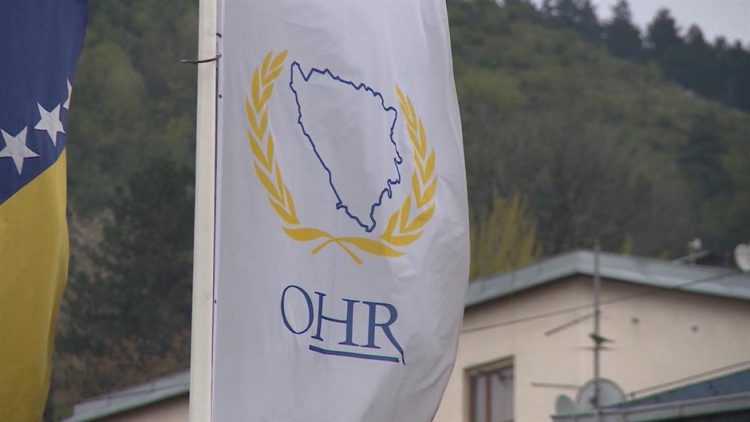
Bosnia’s international administrator welcomed on Tuesday an agreement political leaders signed a day earlier which should result in the country finally forming a new government, saying that once all necessary conditions are met, his office will close down.
The Agreement, containing 12 principles that need to be met in order for the government to be formed within 30 days, was signed by the leaders of the three strongest national parties that won the October election – Bosniak Bakir Izetbegovic, from the Party for Democratic Action (SDA), Serb Milorad Dodik, from the Alliance of Independent Social Democrats (SNSD) and Croat Dragan Covic, from the Croat Democratic Union (HDZ).
One of the principles in the Agreement obligates the political leaders to “incrementally create conditions for the institutions of Bosnia and Herzegovina to take over full sovereignty” and for the OHR mandate in the country to end.
The Office of the High Representative (OHR) is the body the international community set up in the 1995 Dayton Peace Agreement, which ended Bosnia’s war. The UN Security Council names the High Representative, who monitors the civilian implementation of the Dayton Agreement.
The current High Representative is Austrian diplomat Valentin Inzko.
“The OHR welcomes yesterday’s signing of the principles for forming the government, and we hope that those principles will result in the swift appointment of the Council of Ministers of Bosnia and Herzegovina,” the OHR said.
It also expressed thanks to the EU Special Representative in the country, Lars-Gunnar Wigemark, as well as hope that governments on other state levels will soon be formed as well.
“As for the closing of the OHR, we welcome the fact that political leaders agreed that they will actively work on creating the conditions for the transition of the OHR,” it said.
But the OHR also said that it is up to the Peace Implementation Council (a body composed of ambassadors and officials of the international community), the UN Security Council, and the High Representative to determine whether those conditions were met.
“However, shutting down (the OHR) is explicitly conditioned by the positive assessment of the political situation in Bosnia and Herzegovina, based on the full implementation of the Dayton Peace Agreement,” it said.
“Therefore, the biggest contribution political leaders can provide toward the shutting down of the OHR is to stop with destructive policies which deepen divisions,” it concluded.




